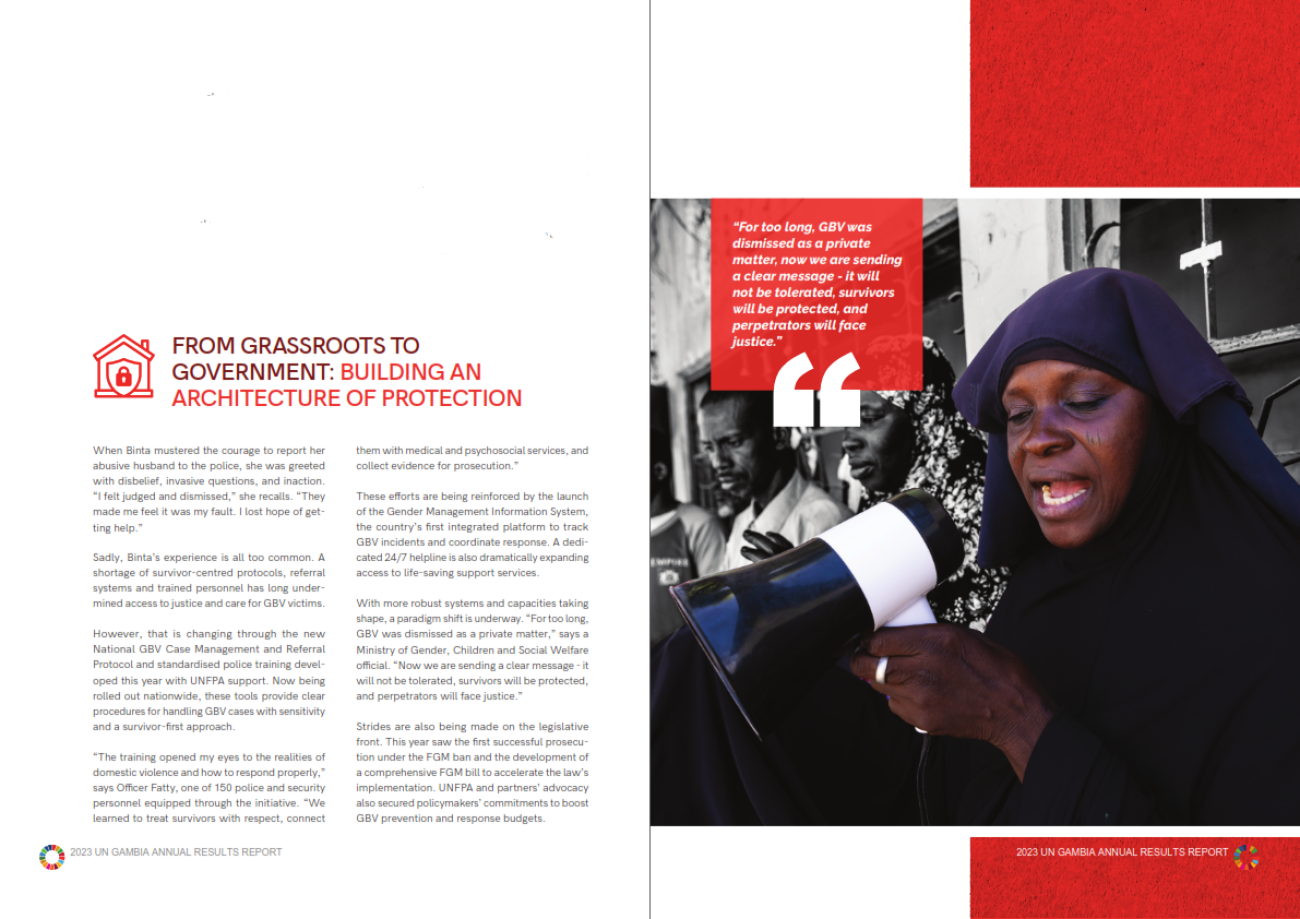The Gambia strengthens GBV protection with new protocols, police training, and a 24/7 helpline. Survivors like Binta now see hope for justice and support.
When Binta mustered the courage to report her abusive husband to the police, she was greeted with disbelief, invasive questions, and inaction.
“I felt judged and dismissed,” she recalls. “They made me feel it was my fault. I lost hope of getting help.”
Sadly, Binta’s experience is all too common. A shortage of survivor-centred protocols, referral systems and trained personnel has long undermined access to justice and care for GBV victims.
However, a changing through the new National GBV Case Management and Referral Protocol and standardised police training developed with UNFPA support. Now being rolled out nationwide, these tools provide clear procedures for handling GBV cases with sensitivity and a survivor-first approach.
“The training opened my eyes to the realities of domestic violence and how to respond properly,” says Officer Fatty, one of 150 police and security officers who received the intensive training. “We learned to treat survivors with respect, connect them with medical and psychosocial services, and collect evidence for prosecution.”
These efforts are being reinforced by the launch of the Gender Management Information System, the country’s first integrated platform to track GBV incidents and coordinate response. A dedicated 24/7 helpline is also dramatically expanding access to life-saving support services.
With more robust systems and capacities taking shape, a paradigm shift is underway.
“For too long, GBV was dismissed as a private matter,” says a Ministry of Gender, Children and Social Welfare official. “Now we are sending a clear message - it will not be tolerated, survivors will be protected, and perpetrators will face justice.”
Strides are also being made on the legislative front. This year saw the first successful prosecution under the FGM ban and the development of a comprehensive FGM bill to accelerate the law’s implementation. UNFPA and partners’ advocacy also secured policymakers’ commitments to boost GBV prevention and response budgets.



